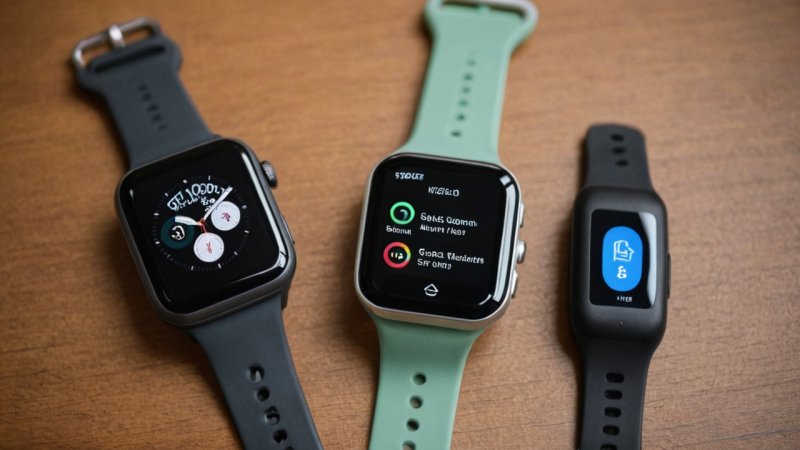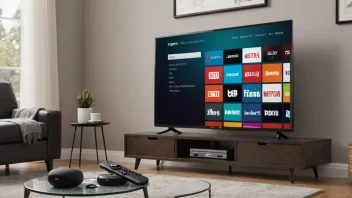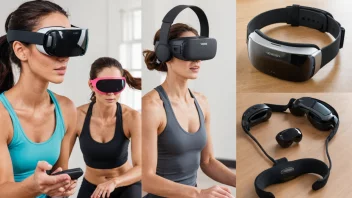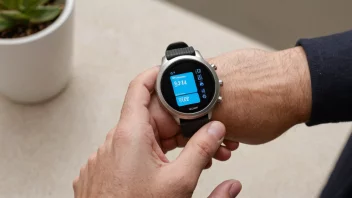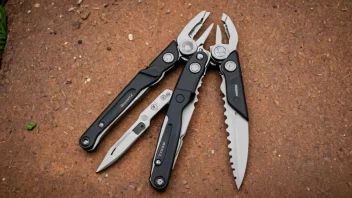Wearable technology has transformed the way we monitor our health, track our activities, and stay connected. Among the most popular devices are smartwatches and fitness trackers. Each serves a unique purpose and comes with its own set of features, advantages, and disadvantages. In this article, we will explore the differences between these two types of wearables, helping you decide which one is best suited for your lifestyle and fitness goals.
Overview of Smartwatches
Smartwatches are multifunctional devices that go beyond simple fitness tracking. They are designed to sync with your smartphone, providing notifications for calls, messages, and apps right on your wrist. Many smartwatches also come equipped with fitness tracking capabilities, GPS, and heart rate monitors.
Pros of Smartwatches
- Versatility: Smartwatches can perform a variety of tasks, including tracking fitness, making calls, and controlling smart home devices.
- Integration: Seamless integration with smartphones allows for quick access to notifications and apps.
- Customization: Many models offer interchangeable bands and customizable watch faces to suit personal style.
Cons of Smartwatches
- Battery Life: Due to their multifunctionality, smartwatches often require more frequent charging compared to fitness trackers.
- Cost: They can be more expensive than fitness trackers, particularly models with advanced features.
- Complexity: The extensive features can be overwhelming for users who only want basic fitness tracking.
Overview of Fitness Trackers
Fitness trackers are primarily focused on monitoring health and fitness metrics. They are typically less expensive than smartwatches and are designed for individuals who want to track their physical activity, sleep patterns, and heart rates without the additional features of a smartwatch.
Pros of Fitness Trackers
- Battery Life: Fitness trackers usually have longer battery life, often lasting several days or even weeks on a single charge.
- Simplicity: They offer straightforward features that are easy to use, making them ideal for those who prefer a no-frills approach.
- Affordability: Generally, fitness trackers are more budget-friendly, allowing users to monitor their health without a significant investment.
Cons of Fitness Trackers
- Limited Features: They often lack the advanced functionalities of smartwatches, such as app notifications and music control.
- Less Customization: Fitness trackers typically have fewer options for personalization compared to smartwatches.
- Dependency on Smartphone: Many fitness trackers require a connection to a smartphone app to access detailed analytics.
Key Differences Between Smartwatches and Fitness Trackers
| Feature | Smartwatch | Fitness Tracker |
|---|---|---|
| Primary Function | Multifunctional | Fitness-focused |
| Battery Life | Shorter (1-2 days) | Longer (up to weeks) |
| Price Range | Higher | Lower |
| Customization | High | Low |
| Health Tracking | Basic to Advanced | Basic to Intermediate |
Who Should Choose a Smartwatch?
If you value versatility and want a device that can perform multiple tasks, a smartwatch may be the right choice for you. It’s ideal for individuals who want to stay connected without always reaching for their phone. Additionally, if you're interested in advanced fitness features, such as GPS for outdoor running or detailed health metrics, a smartwatch can offer those capabilities.
Who Should Choose a Fitness Tracker?
A fitness tracker is the better option if your primary goal is fitness monitoring without the bells and whistles of a smartwatch. It's perfect for people who appreciate a straightforward device that focuses on health metrics, such as steps taken, calories burned, and sleep quality. If you’re looking for something budget-friendly and easy to use, a fitness tracker is a solid choice.
Conclusion
Both smartwatches and fitness trackers have their unique advantages and disadvantages. Your choice ultimately depends on your lifestyle, budget, and fitness goals. If you desire a multifunctional device that keeps you connected and tracks your fitness, go for a smartwatch. However, if you prefer a simple, effective way to monitor your health without the extra features, a fitness tracker is the way to go. Assess your needs carefully to make the best choice for your wearable tech journey.
